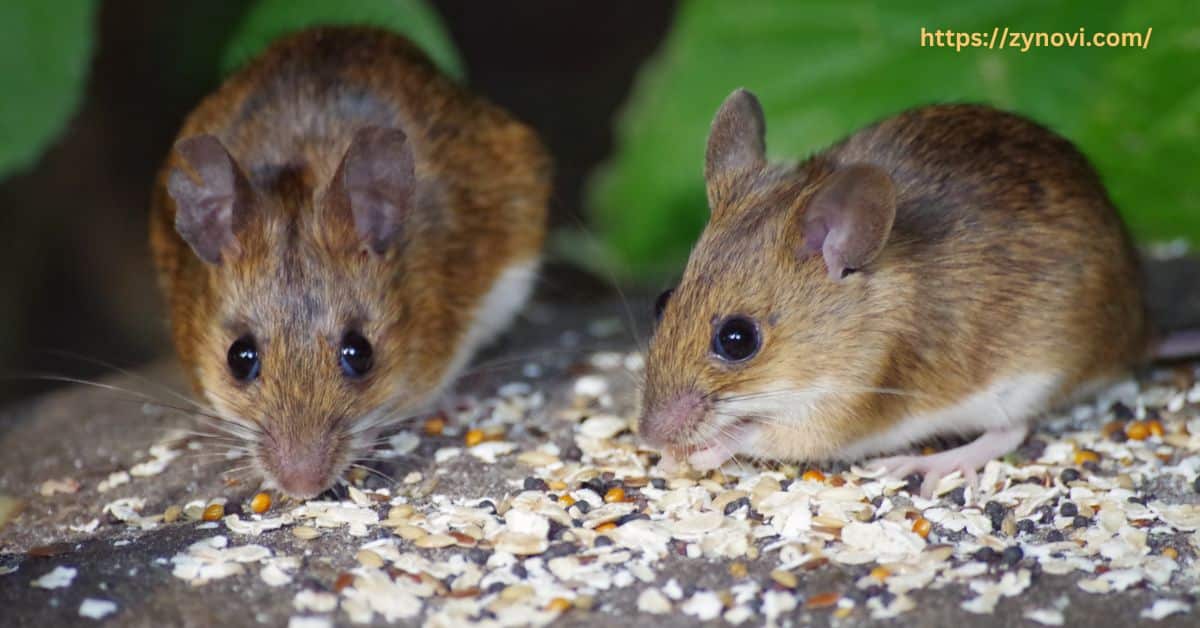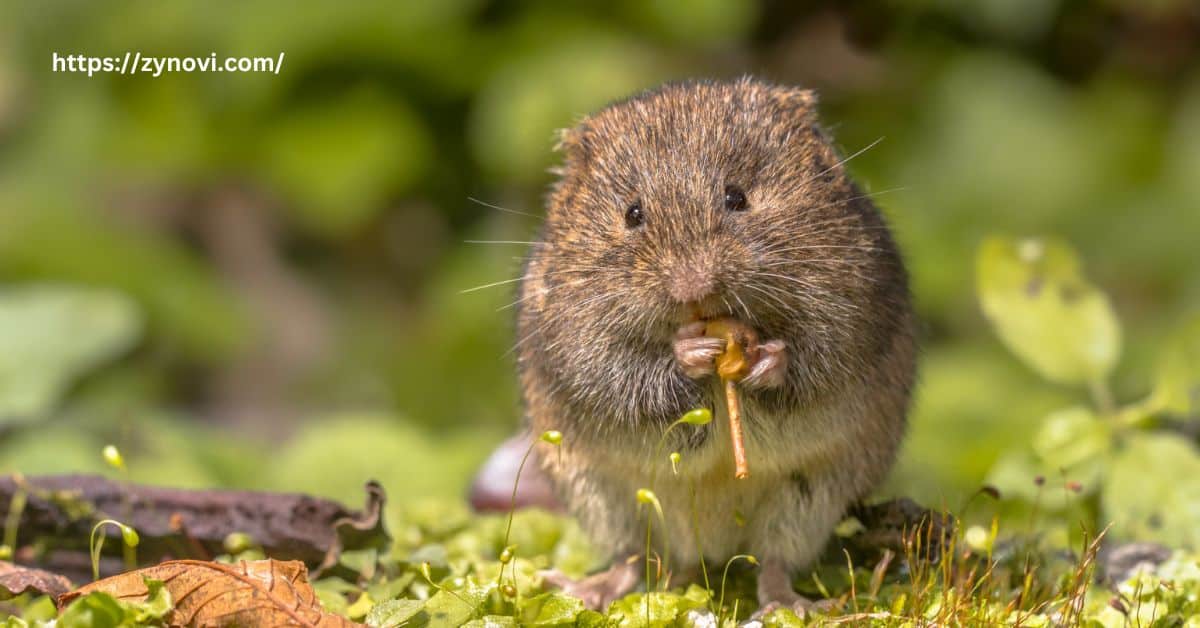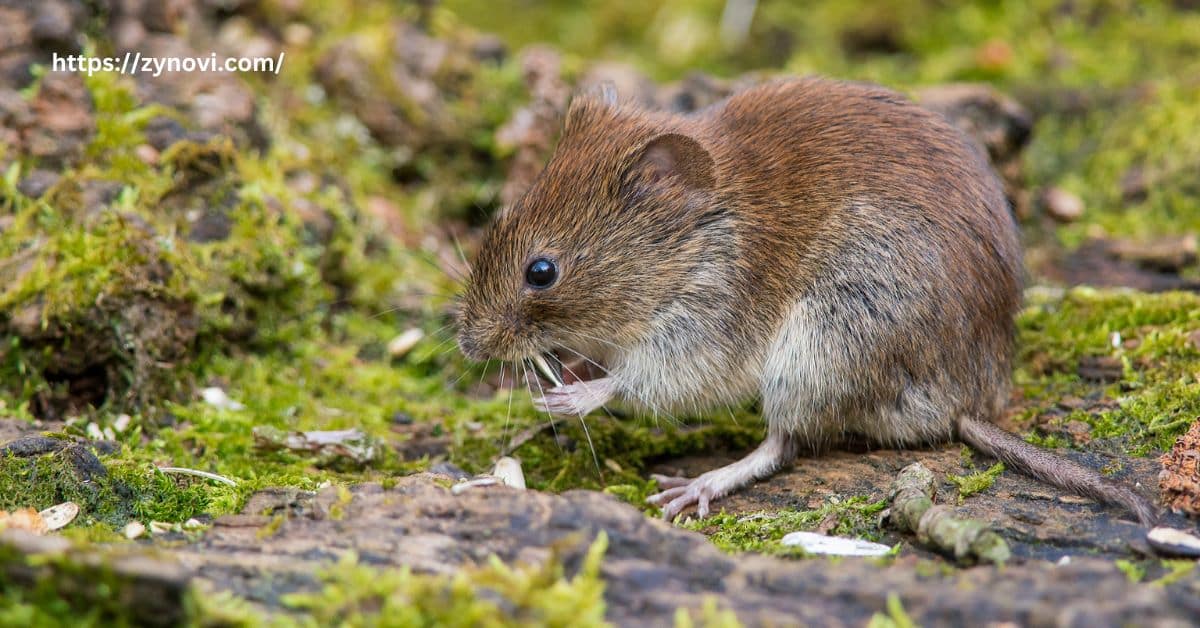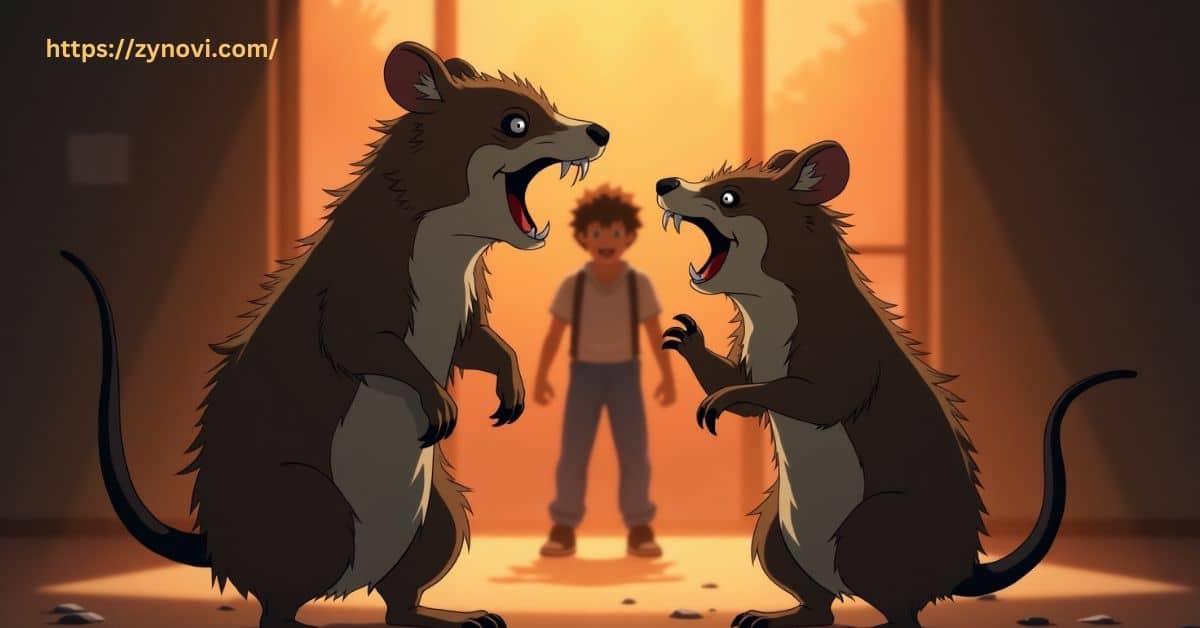Do voles attack humans? No, Voles do not attack humans; they are timid creatures that no threat to humans prefer to flee rather than fight.
If you’ve spotted these small, scurrying rodents in your yard or garden, you might be wondering whether they’re a threat to you or your family. With their tiny size and harmless appearance, it’s hard to imagine these creatures causing harm, but understanding their behavior is key to knowing what to expect.
In this article, we’ll find out the truth about voles and their interactions with humans. Are they aggressive? Could they bite? And most importantly, do they pose any risks to your health? Stick around to uncover everything you need to know about these timid rodents.
What Are Voles? A Quick Overview
Voles are small, stocky rodents known for their short tails, rounded ears, and compact, robust bodies. As members of the rodent family, they are often mistaken for mice or moles but can be distinguished by their unique physical traits.
These creatures are widely distributed across North America, Europe, and Asia, thriving in diverse habitats such as fields, meadows, gardens, woodlands, and wetlands. Adaptable and resourceful, voles create intricate burrow systems to forage and evade predators.
Their role in the ecosystem is vital, yet they are often misunderstood due to their resemblance to other small rodents.
Key Vole Physical Characteristics
| Feature | Description |
|---|---|
| Size | 4-8 inches (including the tail) |
| Weight | 1-2 ounces |
| Color | Brown, gray, or reddish-brown fur |
| Tail Length | Shorter than the body length |
| Teeth | Sharp incisors for gnawing on vegetation |
Types of Voles in North America
There are over 150 species of voles worldwide, but here are the three most common in North America:
- Meadow Vole (Microtus pennsylvanicus): This species thrives in grassy fields, meadows, and marshlands, where it builds extensive tunnel systems. It is the most widespread vole in North America and a key player in local ecosystems.
- Prairie Vole (Microtus ochrogaster): Found in grasslands and agricultural areas, prairie voles are highly social and often live in family groups. They are known to adapt well to farmland habitats, occasionally causing crop damage.
- Woodland Vole (Microtus pinetorum): Preferring forested regions, gardens, and orchards, woodland voles are smaller and less visible due to their burrowing lifestyle. Their diet includes roots, bulbs, and other plant materials, making them common garden pests.
Do Voles Attack Humans? Examining the Risks

Despite their classification as rodents, voles are generally non-aggressive and avoid humans. Their instinctual behavior leans toward hiding or fleeing when they sense danger.
Vole Behavior Explained
- Timid and Shy Nature: Voles are naturally shy animals, spending most of their time hidden within their intricate burrow systems. Their behavior is characterized by a preference for staying out of sight.
- Foraging and Predators: These small rodents focus on foraging for food while evading natural predators like foxes, owls, hawks, and snakes, which are constantly on the hunt for them.
- Non-Territorial and Non-Aggressive: Unlike some rodents, voles are not territorial and show very little aggression. They are most likely to exhibit defensive behavior only if they feel cornered or threatened.
“Voles are more likely to flee than fight when encountering humans,” making them a low-risk species in terms of direct interaction.
Why Voles Rarely Pose a Threat to Humans
- Shy Nature: Voles are naturally wary and cautious around larger animals, including humans. They rely on their instinct to hide or escape rather than confront potential threats.
- Non-Aggressive Behavior: Lacking both the physical attributes and the instinct to attack, voles typically do not pose a danger to humans unless they are provoked or cornered.
- Focus on Survival: Their primary focus is on foraging for food and evading predators such as foxes and hawks. Confronting humans is not part of their survival strategy.
Are Vole Bites Possible?
Although uncommon, vole bites can happen in certain situations, especially when they feel threatened or provoked.
- When a Vole Feels Trapped or Threatened: Voles are shy by nature, but if they are cornered or perceive no escape route, they may bite as a defensive reaction.
- Accidental Contact: Bites may occur when humans accidentally handle voles while removing them from gardens, homes, or burrows. Direct contact increases this risk.
- Vole Bite Risks: Vole bites are rarely severe but require immediate attention. Clean the wound thoroughly and keep an eye out for signs of infection, as rodents can potentially carry diseases.
How to Handle a Vole Encounter?

Vole encounters are usually harmless, but handling the situation with care protects both you and the animal.
Do’s and Don’ts
- Do: Remain Calm and Avoid Sudden Movements
Voles are timid creatures, and staying calm reduces their stress, making it easier for them to retreat. - Do: Use Gloves if Handling is Necessary
Always wear protective gloves to minimize the risk of bites and exposure to diseases like Hantavirus or Leptospirosis. - Don’t: Corner or Provoke the Vole
Cornering a vole may trigger defensive behavior. Give it space to find its way out naturally.
Vole encounters are typically harmless, but knowing how to handle them ensures safety for both you and the animal.
Preventative Measures
Taking a few precautionary steps can help reduce the likelihood of a vole infestation in your yard or home.
- Reduce Vegetation
Overgrown grass, dense shrubs, and piles of debris provide perfect hiding spots for voles. Regularly trimming vegetation around your property can discourage them from settling nearby. - Sealing Gaps
Check for and seal any cracks or gaps in the walls, doors, or windows of sheds, garages, and homes. This prevents voles from finding easy access to sheltered areas. - Repellents
Natural repellents like castor oil or predator urine can be effective in keeping voles away. These scents make the area less appealing and encourage voles to relocate. - Humane Traps
If you need to remove a vole, opt for live traps to safely capture and relocate the animal. This avoids harm and is a humane solution for both you and the vole.
Voles and Disease: Are They a Health Concern?

Although voles are not inherently dangerous, they can carry diseases that pose risks to humans and pets.
Diseases Potentially Transmitted by Voles
| Disease | Transmission Method | Symptoms |
|---|---|---|
| Hantavirus | Contact with vole urine, feces, or saliva | Fever, fatigue, respiratory issues |
| Leptospirosis | Exposure to infected vole urine | Muscle pain, fever, liver damage |
| Lyme Disease | Via ticks that infest voles | Rash, joint pain, neurological issues |
Protective Measures
Implementing protective measures ensures your safety and minimizes health risks when dealing with voles or their habitats.
- Wear Gloves and Masks
Always use gloves and masks when cleaning areas contaminated by vole droppings, urine, or nests. This helps reduce exposure to harmful pathogens. - Keep Pets Vaccinated
Ensure your pets are up-to-date on their vaccinations and regularly monitor them for signs of tick infestation or other parasites that voles may carry. - Inspect Property Regularly
Conduct regular inspections of your property to detect early signs of vole activity, such as burrows, gnawed plants, or droppings, to address potential issues promptly.
FAQs
Are voles dangerous to humans?
Voles are generally not dangerous to humans, but they can transmit diseases through droppings, urine, or ticks.
Can a vole hurt you?
Voles rarely hurt humans, but a bite is possible if they feel trapped or threatened.
Are voles aggressive?
No, voles are shy and non-aggressive, preferring to flee rather than confront threats.
Do voles carry disease?
Yes, voles can carry diseases like hantavirus, leptospirosis, and Lyme disease via parasites or bodily fluids.
Conclusion: Do Voles Attack Humans?
To answer the pressing question, “Do voles attack humans?”, the simple response is no. Voles are timid creatures that prefer avoiding human interaction. While they can bite if provoked, such incidents are rare and easily preventable.
By understanding Vole behavior, their ecological importance, and proper prevention techniques, you can enjoy a vole-free environment without unnecessary fear. Whether you’re dealing with voles in your garden or just curious about these fascinating rodents, knowledge is your best tool for coexistence.
“Voles may be small, but their role in the ecosystem is significant, balancing soil health and serving as prey for predators.”










